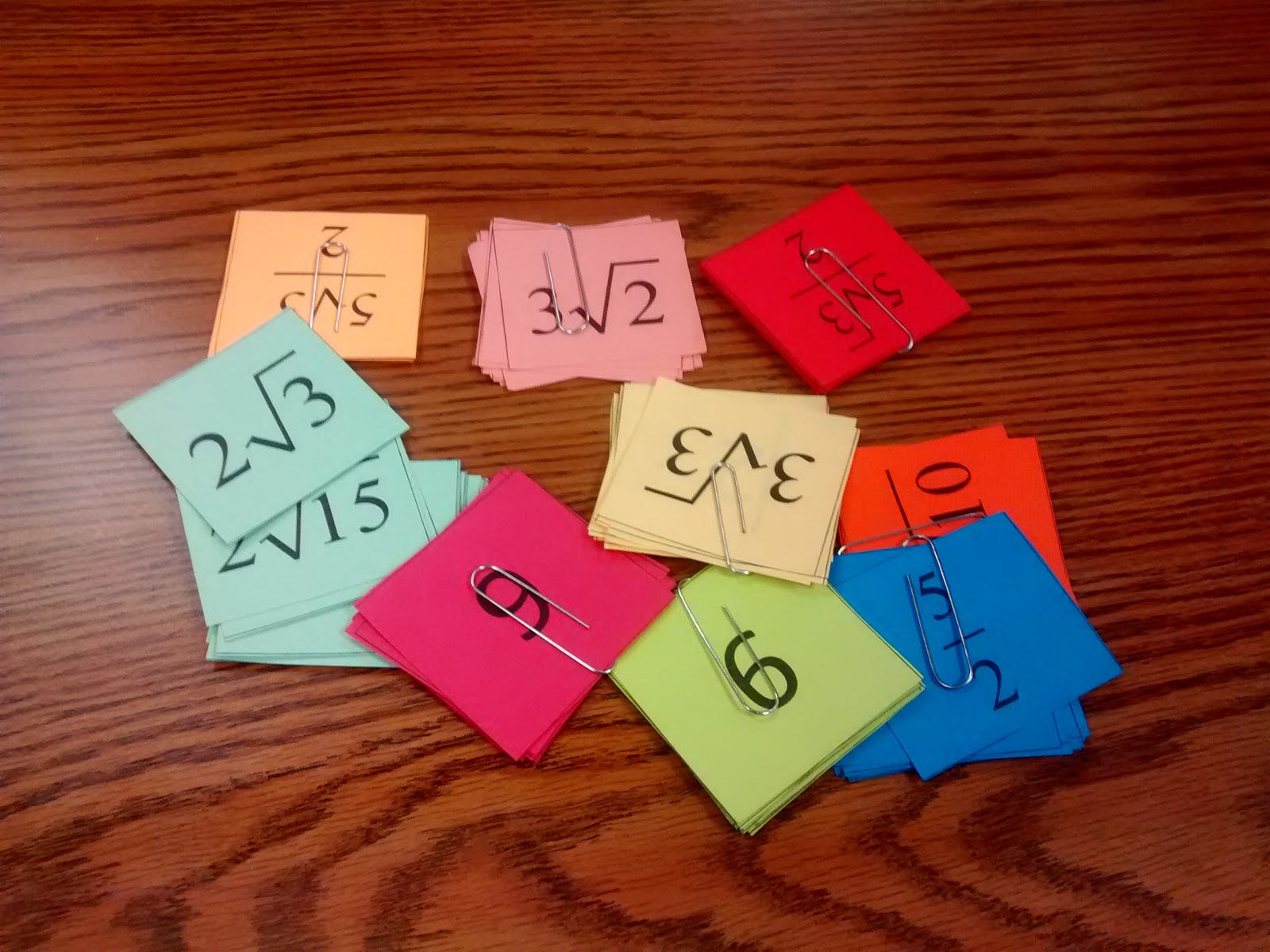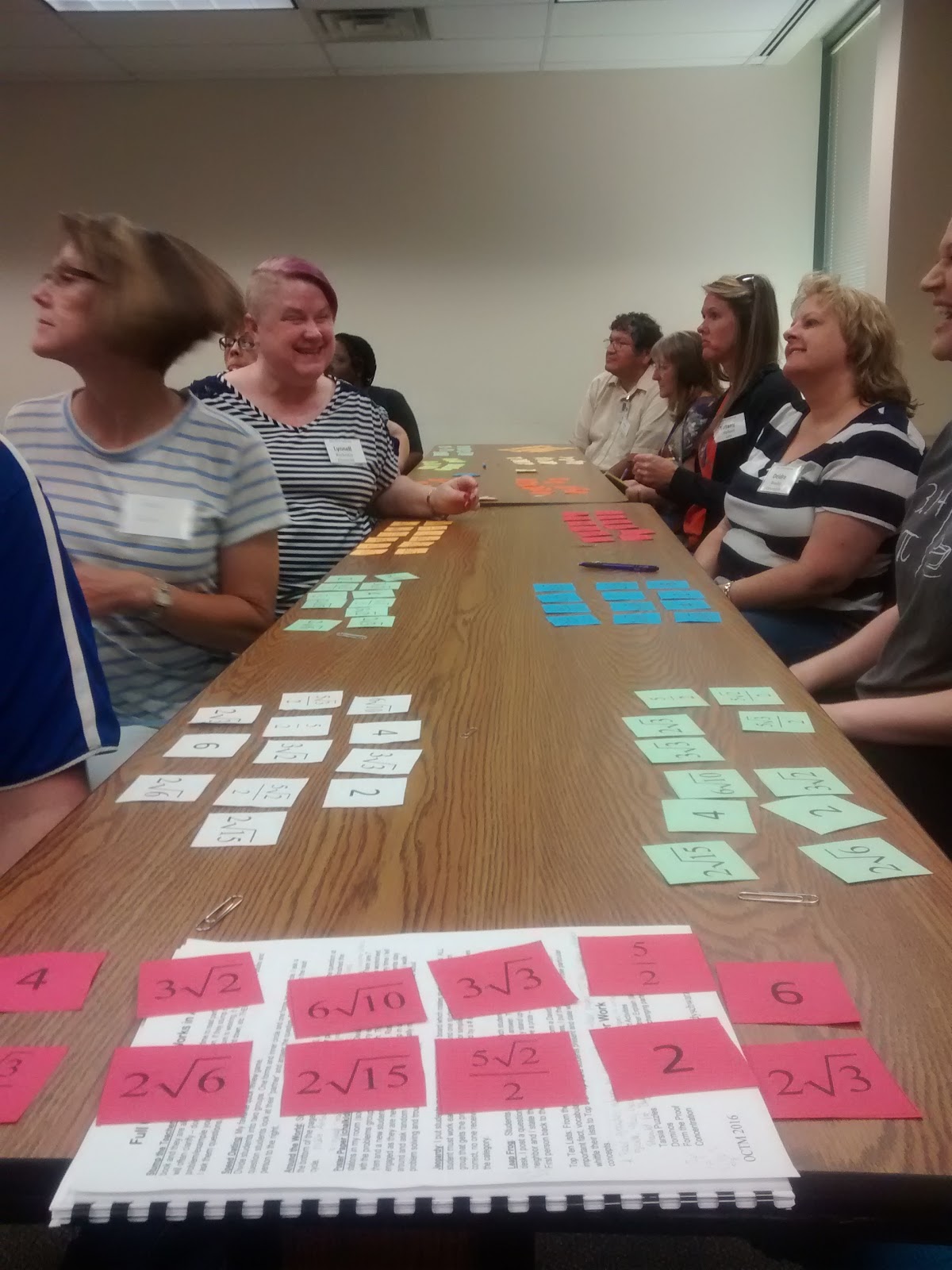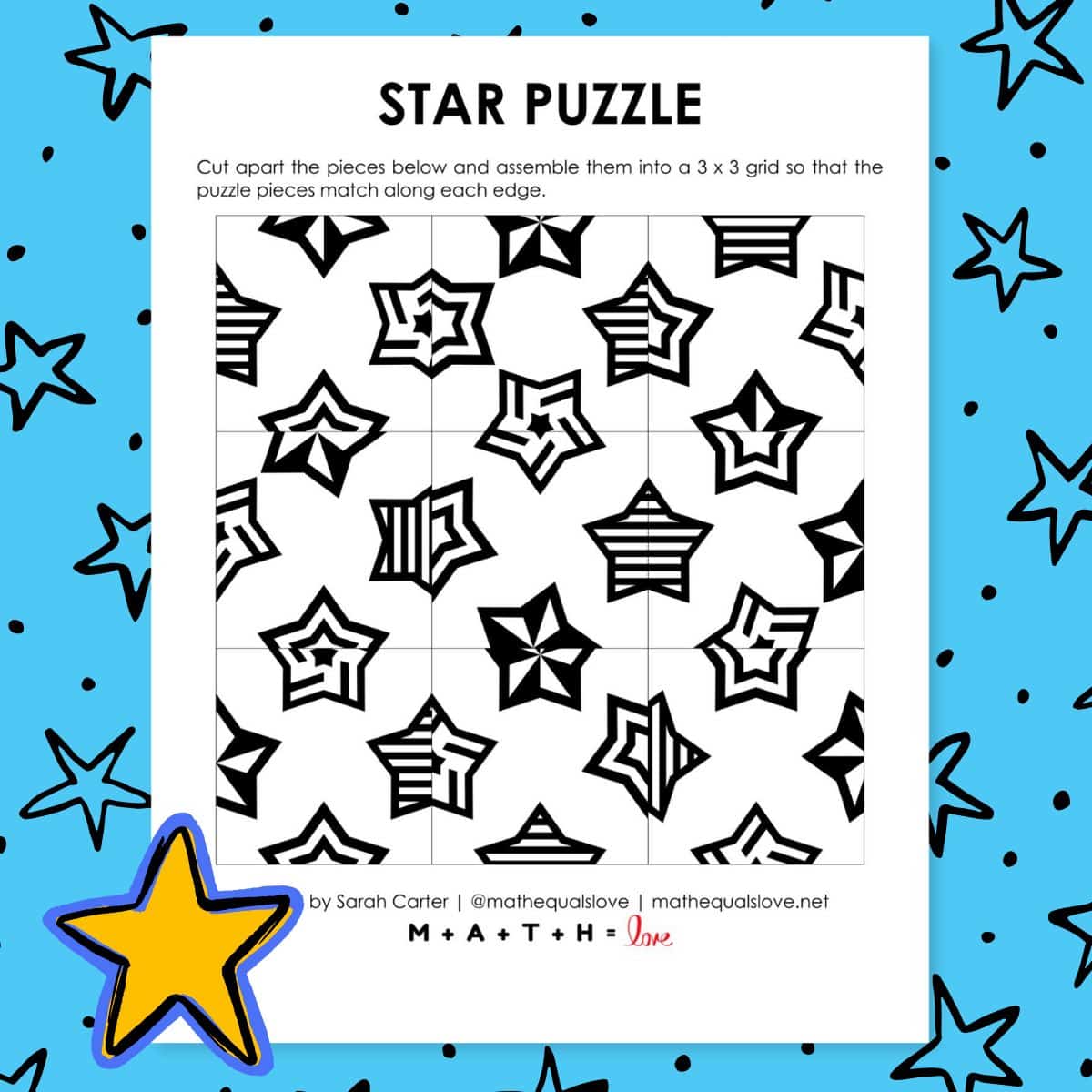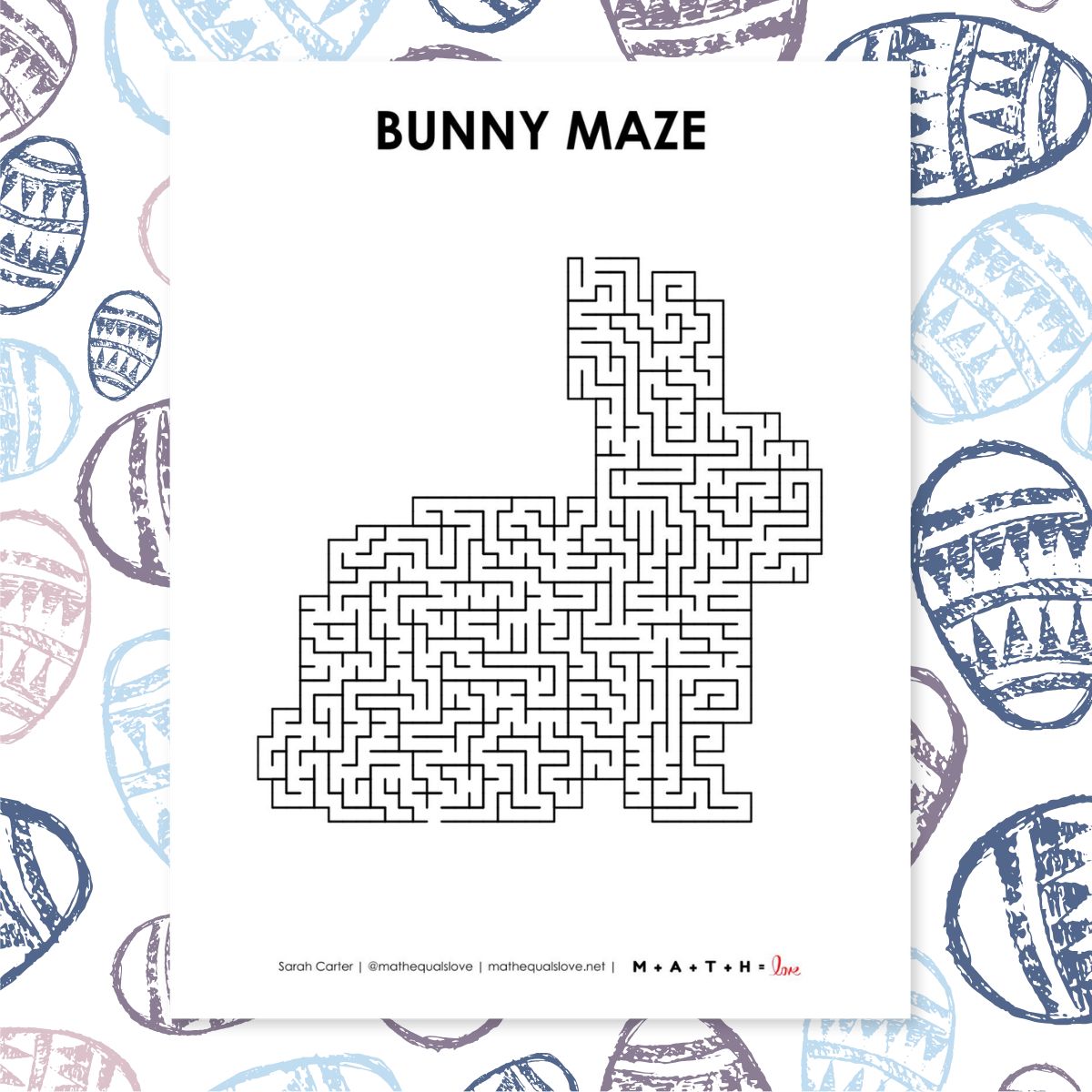Leap Frog Review Game
This leap frog review game is fast-paced and fun. It works great for any math topic where students have a limited choice of possible answers.

I learned about this review game while attending a session titled “Taking the Practice Out of the Worksheet” by Judy Schwarz of Moore Public Schools at the Oklahoma Council of Teachers of Mathematics Summer Conference.
This was a review game that was totally new to me. That’s always exciting to experience at a conference!
Each student is given a deck of cards. This will be their answer bank. Judy suggested printing each deck on a separate color of paper. If this isn’t feasible, have the first set of students who use each deck write their initials on the back of each card. Then, if a card gets dropped in the floor during clean-up, it can easily be reunited with its friends.

Students arrange their desks in a circle, and each student lays out their deck of cards.
We played Leap Frog around two rectangular tables. This worked, too.

A problem is projected on the board.
When a student figures out the answer (or what they think the answer is) they grab the answer card and hide it so none of their neighbors can see.
When time is called, each person compares the answer card in their hand with the answer card in their neighbor’s hand. The teacher announces the correct answer. Everyone returns their answer card to the deck in front of them. Those students who got the answer correct stand and rotate desks to the right.
The goal of the game is to be the first student to make it all the way back to where you started by “leap frogging” over other players.
The facilitator said she has used this with great success with her Pre-AP Geometry classes. I can definitely see the competitive nature of this activity working for more advanced students. But, I’m not sure if I’d want to use this with my Algebra 1 classes. I can see my IEP students getting very, very frustrated. My trig and statistics classes, on the other hand, would probably have a lot of fun with this.
Some of the audience members expressed that making up a deck of cards was too much work, and they suggested having students write their answers on a dry erase board.
One other concern I have with this activity is that I think it might be a tad bit too easy for students to cheat. I was sitting right next to Shaun, and it would have been very easy to just wait for him to pick up his answer and pick up the same answer. Of course, students can cheat with many review games by just looking at what their neighbors are doing. I guess the only person they are punishing is themselves.
The last few things we did during the hour-long workshop was to circulate between three tables with more ideas of practice activities that don’t involve just doing a worksheet. Each table had a sheet explaining each activity. Instead of trying to put each activity into my own words, I’m just posting the picture I took of each sheet.
I ended up creating a leap frog activity of my own involving exact values of trig functions.






